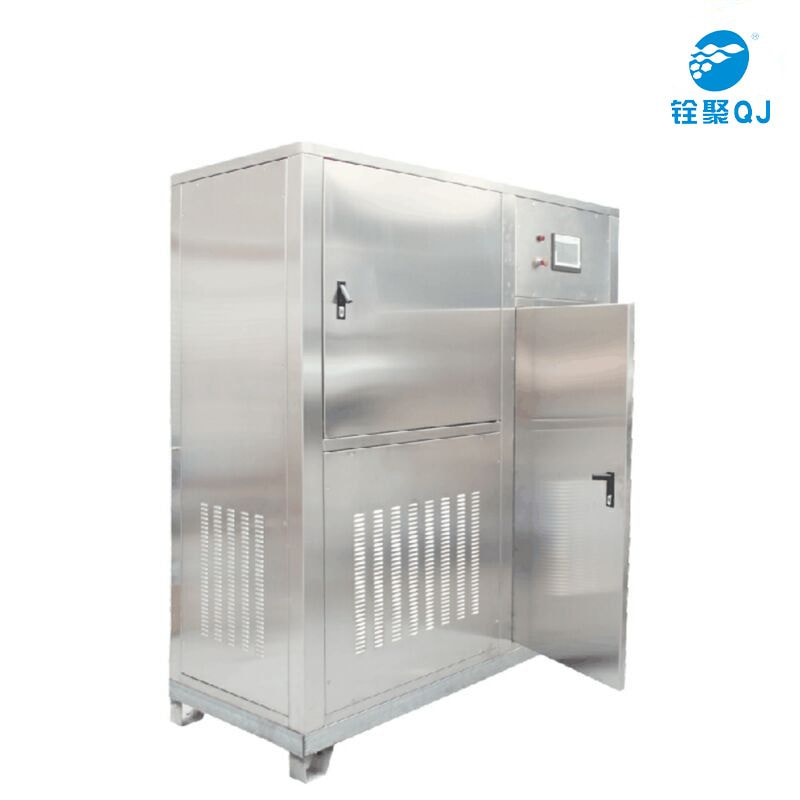Ozone Generators vs Ionizers: Unveiling the Contrasts
Introduction:In the pursuit of cleaner, healthier air, ozone generators and ionizers emerge as popular choices for air purification. Both technologies claim to enhance indoor air quality, but they operate on distinct principles. In this article, we unravel the differences between ozone generators and ionizers to help you make an informed choice for your air purification needs.
Understanding Ozone Generators:
Ozone generators, as the name suggests, produce ozone (O3) to eliminate impurities in the air. Ozone is a powerful oxidizing agent that can neutralize bacteria, viruses, and odors. The process involves breaking down stable oxygen molecules (O2) and releasing the third oxygen atom, forming ozone. Ozone generators are effective in both air and water purification processes.
Understanding Ionizers:
Ionizers, on the other hand, work by releasing charged ions into the air. These ions attach themselves to airborne particles, such as dust, allergens, and bacteria, causing them to become negatively charged. Once charged, these particles are attracted to positively charged surfaces or each other and eventually settle, removing them from the air. Ionizers are primarily used for air purification.

Effectiveness in Air Purification:
Ozone Generators:Ozone generators excel in eliminating odors and killing microorganisms. They are particularly effective in spaces where thorough disinfection is required. However, ozone can be harmful in high concentrations, so proper usage and monitoring are essential.
Ionizers:Ionizers are adept at removing particulate matter from the air. They can help reduce allergens, dust, and other airborne particles, making them suitable for individuals with respiratory issues. However, they may not be as effective in neutralizing odors or killing microorganisms as ozone generators.
Safety Considerations:
Related links:Ozone Generators:While effective, commercial ozone generators require careful handling. High concentrations of ozone can be harmful to humans and pets. It is crucial to follow safety guidelines, ensure proper ventilation, and use ozone generators judiciously.
Ionizers:Ionizers are generally considered safe for humans. However, the settled particles may still need to be cleaned regularly to prevent them from becoming airborne again. The effectiveness of ionizers can vary depending on the specific model and the size of the space.
Environmental Impact:
Ozone Generators:Ozone, when released into the atmosphere, can contribute to air pollution. It's essential to use ozone generators responsibly to minimize their environmental impact.
Ionizers:Ionizers have a lower environmental impact, as they do not release substances into the air. However, the effectiveness of ionizers in purifying the air may depend on factors such as humidity and particle size.
Conclusion:
In the ozone generators vs ionizers debate, the choice ultimately depends on your specific air purification needs and safety considerations. Ozone generators are potent disinfectants but require careful use, while ionizers excel at removing particulate matter but may have limitations in other areas. Understanding the strengths and limitations of each technology is crucial in making an informed decision for your indoor air quality.
Contact Us for Air Purification Solutions:
If you are exploring air purification options and need guidance or a reliable supplier, feel free to contact us. Our team is dedicated to providing comprehensive solutions tailored to your specific requirements. Whether you are considering ozone generators, ionizers, or other air purification technologies, we are here to assist you in achieving cleaner and healthier indoor air.
212
0
0
All Comments (0)
Related Articles
If you are interested in sending in a Guest Blogger Submission,welcome to write for us!
Comments